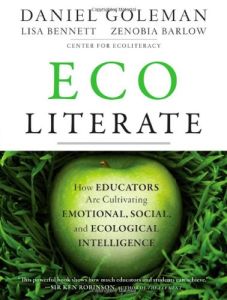
Ecoliterate
How Educators Are Cultivating Emotional, Social, and Ecological Intelligence
ISBN: 9781118104576
Pages: 192
Read or listen offline
Recommendation
Daniel Goleman (author of Emotional Intelligence), Lisa Bennett and Zenobia Barlow explain the tenets of “ecoliteracy.” They advocate engaging with your community and with environmental causes to thwart ever-increasing threats to clean air, water and land. People need a positive, aware relationship with the natural world to ensure humanity’s individual and collective survival. Population growth from 1.6 billion people in 1900 to more than seven billion in 2012 puts new demands on water supplies, makes it harder to feed people and exhausts the soil. The authors ask if the Earth has “a breaking point,” and then provide educators and concerned citizens with a wealth of teaching ideas, exercises and tools to build knowledge and inspire activism. getAbstract recommends the authors’ lovely, intelligent exploration of ecological issues to anyone interested in education, ethics, the environment and humanity’s relationship to the planet.
Take-Aways
About the Authors
Daniel Goleman also wrote Emotional Intelligence, Ecological Intelligence, Social Intelligence, and Leadership. Zenobia Barlow is executive director of the Center for Ecoliteracy, where Lisa Bennett is communications director. The Center’s mission is “advancing education for sustainable living in primary and secondary schools.”





















Comment on this summary or Start Discussion